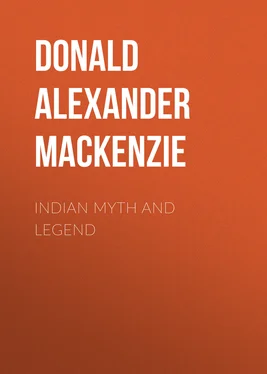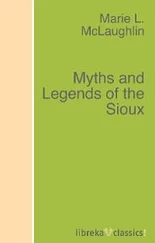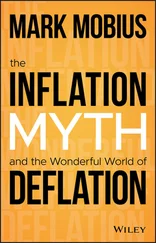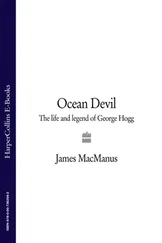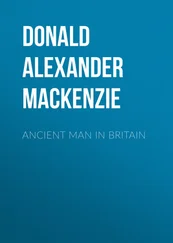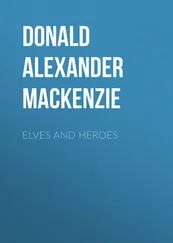Donald Alexander Mackenzie - Indian Myth and Legend
Здесь есть возможность читать онлайн «Donald Alexander Mackenzie - Indian Myth and Legend» — ознакомительный отрывок электронной книги совершенно бесплатно, а после прочтения отрывка купить полную версию. В некоторых случаях можно слушать аудио, скачать через торрент в формате fb2 и присутствует краткое содержание. Жанр: foreign_prose, foreign_religion, Философия, Мифы. Легенды. Эпос, foreign_psychology, foreign_antique, на английском языке. Описание произведения, (предисловие) а так же отзывы посетителей доступны на портале библиотеки ЛибКат.
- Название:Indian Myth and Legend
- Автор:
- Жанр:
- Год:неизвестен
- ISBN:нет данных
- Рейтинг книги:4 / 5. Голосов: 1
-
Избранное:Добавить в избранное
- Отзывы:
-
Ваша оценка:
- 80
- 1
- 2
- 3
- 4
- 5
Indian Myth and Legend: краткое содержание, описание и аннотация
Предлагаем к чтению аннотацию, описание, краткое содержание или предисловие (зависит от того, что написал сам автор книги «Indian Myth and Legend»). Если вы не нашли необходимую информацию о книге — напишите в комментариях, мы постараемся отыскать её.
Indian Myth and Legend — читать онлайн ознакомительный отрывок
Ниже представлен текст книги, разбитый по страницам. Система сохранения места последней прочитанной страницы, позволяет с удобством читать онлайн бесплатно книгу «Indian Myth and Legend», без необходимости каждый раз заново искать на чём Вы остановились. Поставьте закладку, и сможете в любой момент перейти на страницу, на которой закончили чтение.
Интервал:
Закладка:
When the hot Indian summer draws to a close, the whole land is parched and athirst for rain; rivers are low and many hill streams have dried up; man and beast are weary and await release in the breathless enervating atmosphere; they are even threatened by famine. Then dense masses of cloud gather in the sky; the tempest bellows, lightnings flash and thunder peals angrily and loud; rain descends in a deluge; once again torrents pour down from the hills and rivers become swollen and turgid. Indra has waged his battle with the Drought Demons, broken down their fortress walls, and released the imprisoned cow-clouds which give nourishment to his human “friends”; the withered pastures become green with generous and rapid growth, and the rice harvest follows.
According to Vedic myth, Indra achieved his first great victory immediately after birth. Vritra, “the encompasser”, the Demon of Drought, was holding captive in his mountain fortress the cloud-cattle which he had harried in the approved manner of the Aryan raiders. 43Mankind entreated the aid of the gods, “the shining ones, the world guardians”:
Who will take pity? Who will bring refreshment?
Who will come nigh to help us in distress?
Counsels the thoughts within our hearts are counselling,
Wishes are wished and soar towards the highest—
O none but them, the shining ones, are merciful,
My longing wings itself towards the Eternals.
4
INDRA
From the Indra Temple, Ellora
Indra arose heroically to do battle for the sacrificers. Impulsively he seized the nectar of the gods, called Soma, and drank a deep draught of that intoxicating juice. Then he snatched up his thunderstone which had been fashioned by the divine artisan Twashtri, who resembles the Germanic Mimer, the “wonder smith”. His “favourite bays”, named the Bold and the Brown, were yoked in his golden chariot by his attendants and followers, the youthful Maruts.
Now, at the very beginning, Indra, the golden child, became the king of the three worlds. He it was who gave the air of life; he gave strength also. All the shining gods revered him and obeyed his commands. “His shadow is immortality; his shadow is death.”
The Maruts, the sons of red Rudra, were the spirits of tempest and thunder. To each of their chariots were yoked two spotted deer and one swift-footed, never-wearying red deer as leader. They were stalwart and courageous youths, “full of terrible designs like to giants”; on their heads were golden helmets and they had golden breastplates, and wore bright skins on their shoulders; their ankles and arms were decked with golden bracelets. The Maruts were always strongly armed with bows and arrows and axes, and especially with gleaming spears. All beings feared those “cloud shakers” when they hastened forth with their lightning spears which “shattered cattle like the thunderstone”; they were wont to cleave cloud-rocks and drench the earth with quickening showers.
When Indra drove forth to attack the Drought Demon, the “hastening Maruts” followed him, shouting with loud voices: in “a shower” were the Maruts “let loose”; they dashed towards the imprisoned cows of the clouds and “chased them aloft”.
The dragon Vritra roared when Indra drew nigh; whereat heaven shook and the gods retreated. Mother Earth, the goddess Prithivi (prit´hi-vee), was troubled regarding her golden son. But Indra advanced boldly with the roaring Maruts; he was inspired by the hymns of the priests; he had drunken deeply of Soma; he was strengthened by the sacrifices offered on earth's altars; and he wielded the thunderstone.
The Drought Demon deemed itself invulnerable, but Indra cast his weapon and soon discovered the vulnerable parts of its writhing body. He slew the monster; it lay prone before him; the torrents burst forth and carried it away to the sea of eternal darkness. Then Indra rejoiced and cried out:
I have slain Vritra, O ye hast'ning Maruts;
I have grown mighty through my own great vigour;
I am the hurler of the bolt of Thunder—
For man flow freely now the gleaming waters.
On earth the worshippers of the god were made glad; the Rishi hymned his praises:
I will extol the manly deeds of Indra:
The first was when the Thunder stone he wielded
And smote the Dragon; he released the waters,
He oped the channels of the breasted mountains.
He smote the dragon Vritra in its fortress—
Twashtri had shaped for him the thunder weapon—
Then rushing freely like to bellowing cattle
The gladsome waters to the sea descended.
Bull-spirited did Indra choose the Soma,
He drank its juices from the triple ladles;
Then clutched the Bounteous One his thunder weapon,
And fiercely smote the first-born of the Dragons.
The smitten monster fell amidst the torrents,
That pause nor stay, for ever surging onward;
Then Vritra covered by the joyful billows
Was carried to the darksome deeps of Ocean.
A post-Vedic version of the encounter between Indra and the demon Vritra is given in the “Vana Parva” section of Mahābhārata . Although it is coloured by the change which, in the process of time, passed over the religious beliefs of the Aryans, it retains some features of the original myth which are absent in the Vedic hymns. It should be understood that, at the period referred to, the belief obtained that the gods derived their powers from the saintly Rishis, 44who fed them with sacrifices and underwent terrible penances, which enabled them to support or destroy the Universe at will.
It is related that in the Krita Age (the first Age of the Universe) a host of Dānāvas (giants and demons) were so strongly armed that they were invincible in battle. They selected the dragon Vritra as their leader, and waged war against the gods, whom they scattered in all directions.
Realizing that they could not regain their power until they accomplished the death of Vritra, the Celestials appeared before their Grandsire, the Supreme Being, Brahma, the incarnation of the Soul of the Universe. Brahma instructed them to obtain the bones of a Rishi named Dadhicha, from which to construct a demon-slaying weapon. So the gods visited the Rishi and bowed down before him, and begged the boon according to Brahma's advice.
Said Dadhicha: “O ye gods, I will renounce my body for your benefit.”
Then the Rishi gave up his life, and from his bones the artisan god, Twashtri, shaped Indra's great weapon, which is called Vajra. 45
Twashtri spake to Indra and said: “With this, the best of weapons, O exalted one, reduce that fierce foe of the gods to ashes! And, having slain the foe, rule thou happily the entire domain of heaven, O chief of the celestials, with those that follow thee.” 46
Then Indra led the gods against the mighty host. They found that Vritra was surrounded by dreaded Danavas, who resembled mountain peaks. A terrible conflict was waged, but once again the gods were put to flight. Then Indra saw Vritra growing bolder, and he became dejected. But the Supreme Being protected him and the gods endowed him with their strength, so that he became mightier than before. Thereupon Vritra was enraged, and roared loudly and fiercely, so that the heavens shook and the earth trembled with fear. Deeply agitated, Indra flung his divine weapon, which slew the leader of the Danavas. But Indra, thinking the demon was still alive, fled from the field in terror to seek shelter in a lake. The Celestials, however, perceived that Vritra had been slain, and they rejoiced greatly and shouted the praises of Indra. Then, rallying once more, the gods attacked the panic-stricken Danavas, who turned and fled to the depths of ocean. There in the fathomless darkness they assembled together, and began to plot how they would accomplish the destruction of the three worlds. 47
Читать дальшеИнтервал:
Закладка:
Похожие книги на «Indian Myth and Legend»
Представляем Вашему вниманию похожие книги на «Indian Myth and Legend» списком для выбора. Мы отобрали схожую по названию и смыслу литературу в надежде предоставить читателям больше вариантов отыскать новые, интересные, ещё непрочитанные произведения.
Обсуждение, отзывы о книге «Indian Myth and Legend» и просто собственные мнения читателей. Оставьте ваши комментарии, напишите, что Вы думаете о произведении, его смысле или главных героях. Укажите что конкретно понравилось, а что нет, и почему Вы так считаете.
